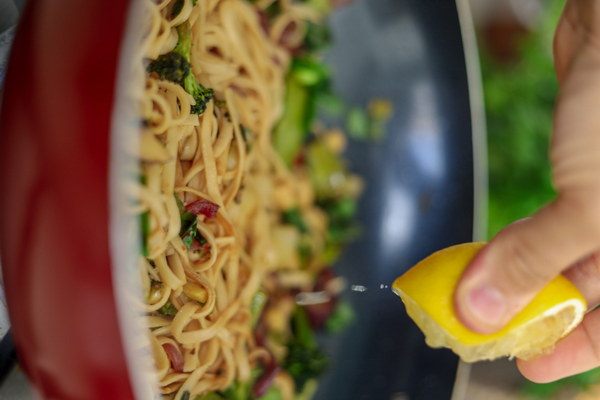Harmonizing Health A Guide to Traditional Chinese Medicine and Dietetics Through the Twenty-Four Solar Terms
In the rich tapestry of Traditional Chinese Medicine (TCM), the concept of aligning one's health and diet with the natural rhythms of the seasons is a cornerstone of wellness. The Twenty-Four Solar Terms, a system that divides the year into 24 distinct periods, provides a framework for understanding how the changing seasons affect our bodies and what we should consume to maintain balance. This article explores the principles of TCM and dietetics as they relate to the Twenty-Four Solar Terms.
1. The Twenty-Four Solar Terms: An Overview
The Twenty-Four Solar Terms are derived from ancient agricultural practices and reflect the changes in the Earth's climate and environment. Each term is associated with a specific time frame and a particular climate pattern, such as the beginning of spring, the summer solstice, or the onset of autumn.
2. Spring: Awakening and Renewal
Spring, the first season of the year, is characterized by the gradual awakening of nature and the accumulation of Yang energy. TCM suggests that during this time, it is essential to support the liver and gallbladder, organs that govern the body's detoxification process.
Dietary Tips:
- Include plenty of fresh vegetables and fruits to nourish the liver.
- Consume foods that are sweet, as sweet flavors help to nourish the liver.
- Avoid cold, raw, and heavy foods that may dampen the liver's energy.
3. Summer: Cooling and Relaxation
Summer is the peak of Yang energy, and the heat can lead to an imbalance if not managed properly. The focus during this season is to maintain coolness and balance the body's fluids.
Dietary Tips:
- Drink plenty of cool, hydrating beverages like green tea or herbal infusions.
- Opt for light, easily digestible meals that are rich in vitamins and minerals.
- Include cooling foods such as watermelon, cucumbers, and mint.
4. Autumn: Harvest and Conservation

As the days grow shorter and cooler, the body begins to conserve energy, transitioning from the heat of summer to the cold of winter. Autumn is a time to focus on the lungs and large intestine, which are associated with the element of Metal.
Dietary Tips:
- Emphasize foods that are slightly cooling and can moisten the lungs, such as apples, pears, and sesame seeds.
- Incorporate sweet and sour flavors to strengthen the lungs and large intestine.
- Avoid overly spicy or excessively sweet foods that may exacerbate dryness.
5. Winter: Rest and Restoration
Winter is the most Yin time of the year, and it is essential to conserve energy and support the kidneys, which are the primary source of Yin in the body.
Dietary Tips:
- Consume warm, nourishing foods that can help to build up the body's reserves, such as soups and stews.
- Focus on foods that are sweet and salty, as these flavors can help to nourish the kidneys.
- Avoid cold and raw foods, which can drain the body's Yang energy.
6. Seasonal Adjustments and Personalization
While the general principles outlined above provide a starting point for seasonal eating, it is important to consider individual constitution and health conditions. TCM emphasizes the concept of Zheng Qi, or true energy, and tailors dietary recommendations to maintain and enhance this energy within each person.
7. Conclusion
The integration of TCM and dietetics through the Twenty-Four Solar Terms offers a comprehensive approach to maintaining health and wellness throughout the year. By aligning our diet with the natural rhythms of the seasons, we can support our body's innate ability to balance and heal itself. Whether you are a seasoned practitioner of TCM or new to the concept, embracing the wisdom of the seasons can lead to a healthier, more vibrant life.









